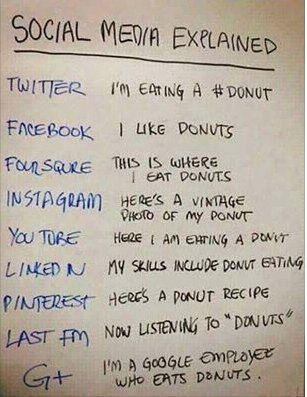Thursday 30th April saw the last prompt descending from the ether to awaken poets from their slumbers. Since January 1st 2014 there has been one posted on a closed Facebook group site at 7.22am each Thursday. The name of the group was ’52’, and I’m writing this mainly to share our experiences with those who weren’t part of it — though I suspect that a fair number of my 52 friends will also have a peek — and maybe comment.
52 was the brainchild and inspiration of the poet Jo Bell, who thought that as a New Year’s Resolution it would be a good idea to invite poets to write to a suggested theme each week. The group would form an on-line community in which all could read each others’ work and make friendly and constructive comments and suggestions for improvements. Jo is Britain’s Canal Laureate, and a finer, livelier and more generous person it would be difficult to find.
If Jo thought she was introducing a cuddly kitten into poetry’s boudoir, she was in for a shock as the animal almost immediately turned into an enthusiastic elephant rampaging happily through the room. Poets flocked to join the site, and got scribbling with enthusiasm. When the membership numbered a rather unwieldy 560, Jo closed the doors to new people. In some ways it might have been better to do this earlier in order to limit the group to a smaller number, as it was easy to miss poems because of the large number being posted; but there was no way Jo could have known in advance that it was going to be quite so popular.
It took a certain courage to post brand new poems up on the internet, knowing that some of them were very raw and unfinished, but we were all in the same boat and understood the nature of the exercise. One of the advantages of the the Facebook page being a closed group (besides limiting the number of people who would see our less than perfect efforts) was that posting there did not constitute publication, so poems could still be submitted to magazines and competitions. And they were! Many many poems that started life on 52 this last year have now entered the public domain, either in good magazines and anthologies or in the top places in prestigious competitions.
Each prompt that Jo posted had a theme to guide us into new thinking, but which we did not have to follow slavishly. Jo’s reflections on these themes were always illuminating, and she illustrated her ideas with poems from the canon. This meant that before we even put pen to paper (finger to laptop) we read some wonderful poetry by other poets down the centuries to inspire us. This, for me, was one of the most exciting aspects of Jo’s input. It would have been so easy for her to say ‘and here’s a brilliant poem by me to illustrate what I’m after’; but she never seems to have been tempted to do that.

So, we set to work on what sometimes, on a Thursday morning, seemed an impossible challenge. Here are a few of the prompts: Lost, Naming names, Exposing yourself, With friends like these, Money talks, The Unseen, The Uncertainty Principle, Macaroni, Earth from Space, Synchronicity, Sensory lack, etc, etc, etc. As you will no doubt agree, they were not necessarily simple subjects.
There were always a few ‘hurtlers’ who had written and posted something within the first hour (I managed a few times), and there were ‘lurkers’ who read and sometimes commented on poems but didn’t write much. But most of us let the ideas ferment as we got on with life, and well before the following Wednesday we had come up with something which, though far from perfect, was sufficiently finished to share. We then held our breath as hundreds of other poets read our offering. Often there would just be a ‘like’, but there was also plenty of comment. Sometimes it was just the obvious ‘have you thought of dropping the last two lines?’ or ‘are you sure you need that explanation at the beginning?’; but sometimes a different word or poetic form would be suggested.
 At the end of the year, Jo moved on to other work, and one of the 52ers, Norman Hadley, agreed to keep the group going for a little longer, which is why it has continued until this week — Week 70. Still not content to let go of this warm friendly community, Hannah Linden (pictured left) has formed a group called Mint, to keep all these lovely people in touch with each other and to give a space for the flood of news about publication of 52 poems. The name Mint was chosen because that word became a favourite positive response to good poems.
At the end of the year, Jo moved on to other work, and one of the 52ers, Norman Hadley, agreed to keep the group going for a little longer, which is why it has continued until this week — Week 70. Still not content to let go of this warm friendly community, Hannah Linden (pictured left) has formed a group called Mint, to keep all these lovely people in touch with each other and to give a space for the flood of news about publication of 52 poems. The name Mint was chosen because that word became a favourite positive response to good poems.
There’s always a question with such activities as to whether it’s best to end with a bang or a whimper. It is true that it was quite difficult to maintain the momentum as 2015 got under way, and I suspect there’s been a certain falling-off in recent weeks. But the group was clearly not quite ready to disband at New Year, and as well as ensuring that the flow of poetry continued, the extra time has also allowed Hannah to get Mint up and running.
There have now been some opportunities for 52ers to get together in real life. Unfortunately I was not able to get to the picnic in Stratford last summer, nor will I be able to join them this year as the date coincides with the Oversteps Day at Ways with Words. However, I met several familiar faces at the Torbay Festival in the autumn, and I’ve just got back from the Wenlock Poetry Festival where 52ers were lurking behind every bush (particularly in the campsite) and we had a very jolly group reading.
52 will not exist after this week, but many of us have got into the habit of writing fast and frequently and have made friends with whom we will stay in touch long after Jo’s 2014 New Year’s Resolution is just a distant memory.
Thank you Jo, and thank you fellow-52ers.
1 Comment




